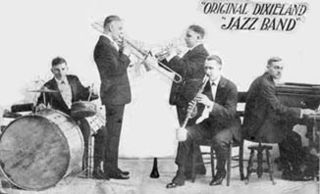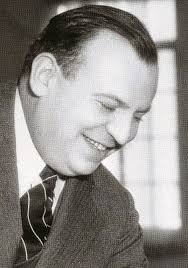
This is a list of notable events in music that took place in the year 1937.
This is a list of notable events in music that took place in the year 1930.
This is a list of notable events in music that took place in the year 1926.
This is a list of notable events in music that took place in the year 1921.
This is a list of notable events in music that took place in the year 1919.

This is a list of notable events in music that took place in the year 1917.
This is a list of notable events in music that took place in the year 1916.

Henry Sterling Creamer was an American popular song lyricist. He was born in Richmond, Virginia and died in New York. He co-wrote many popular songs in the years from 1900 to 1929, often collaborating with Turner Layton, with whom he also appeared in vaudeville.

Alfred Bryan was a Canadian lyricist.

Lew Brown was a lyricist for popular songs in the United States. During World War I and the Roaring Twenties, he wrote lyrics for several of the top Tin Pan Alley composers, especially Albert Von Tilzer. Brown was one third of a successful songwriting and music publishing team with Buddy DeSylva and Ray Henderson from 1925 until 1931. Brown also wrote or co-wrote many Broadway shows and Hollywood films. Among his most-popular songs are "Button Up Your Overcoat", "Don't Sit Under the Apple Tree", "Life Is Just a Bowl of Cherries", "That Old Feeling", and "The Birth of the Blues".

Alexander Dubin was an American lyricist. He is best known for his collaborations with the composer Harry Warren.
Harry Rubenstein, known professionally as Harry Ruby, was an American actor, pianist, composer, songwriter and screenwriter, who was inducted into the Songwriters Hall of Fame in 1970. He was married to silent film actress Eileen Percy.

Bert Kalmar was an American lyricist, who was inducted into the Songwriters Hall of Fame in 1970.

Irving Caesar was an American lyricist and theater composer who wrote lyrics for numerous song standards, including "Swanee", "Sometimes I'm Happy", "Crazy Rhythm", and "Tea for Two", one of the most frequently recorded tunes ever written. In 1972, he was inducted into the Songwriters Hall of Fame.
Mississippi is a state of the United States of America.

George White's Scandals were a long-running string of Broadway revues produced by George White that ran from 1919–1939, modeled after the Ziegfeld Follies. The "Scandals" launched the careers of many entertainers, including W. C. Fields, the Three Stooges, Ray Bolger, Helen Morgan, Ethel Merman, Ann Miller, Eleanor Powell, Bert Lahr and Rudy Vallée. Louise Brooks, Dolores Costello, Barbara Pepper, and Alice Faye got their show business start as lavishly dressed chorus girls strutting to the "Scandal Walk". Much of George Gershwin's early work appeared in the 1920–24 editions of Scandals. The Black Bottom, danced by Ziegfeld Follies star Ann Pennington and Tom Patricola, touched off a national dance craze.

Every Night at Eight is a 1935 American comedy musical film starring George Raft and Alice Faye and made by Walter Wanger Productions Inc. and Paramount Pictures. It was directed by Raoul Walsh and produced by Walter Wanger from a screenplay by C. Graham Baker, Bert Hanlon and Gene Towne based on the story Three On a Mike by Stanley Garvey.
Life Begins at 8:40 is a musical revue with music by Harold Arlen, lyrics by Ira Gershwin and E.Y. Harburg, and sketches by Gershwin, Harburg, David Freedman, H.I. Phillips, Alan Baxter, Henry Clapp Smith, and Frank Gabrielson.

The Night Boat (1920) is a musical in three acts, based on a farce by Alexandre Bisson, with a book and lyrics by Anne Caldwell and music by Jerome Kern. The story lampoons the notorious New York City-to-Albany night boat, on which clandestine romances were common.
The Ziegfeld Follies of 1919 was a revue produced by Florenz Ziegfeld Jr. Billed as the thirteenth edition of the Ziegfeld Follies series, it had a tryout at Nixon's Apollo Theatre in Atlantic City, New Jersey, on June 10, 1919 and opened at Broadway's New Amsterdam Theatre on June 16, 1919 and closed on December 6, 1919. It is often considered to be the best and most successful of the Follies series produced by Ziegfeld.










